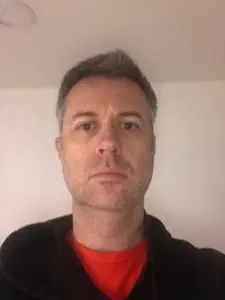

Growing the sport means welcoming newcomers and a top-notch panel discussed the challenges and the solutions in Toronto.
 Kim Davis. Photo by Serena Nappa
Kim Davis. Photo by Serena NappaOver the weekend, the Carnegie Initiative held a summit in Toronto, gathering big names from around the hockey world to both celebrate and speak on inclusion in the sport. Named after recent Hall of Fame inductee Herb Carnegie, whose legacy is being carried on by his family, the Carnegie Initiative held a number of symposiums on Saturday featuring some very interesting panels.
One such talk was a forum entitled Creating Sustainable Change, hosted by Sportsnet's Donnovan Bennett. He was joined by new Hockey Canada Chair Hugh Fraser, NHL senior executive VP Kim Davis, Team Trans founder Daniel Larson and U-16 Toronto Young Nats forward Ajay Rai.
If there was an overarching theme to the messages delivered by the panel, it was about how multiculturalism will be able to propel hockey forward - if the culture embraces it.
"Progress in the next 10 years could surpass what happened in the past 60 years," Fraser said.
Fraser, a former judge in Ontario, emigrated from Jamaica and got into hockey as a kid, collecting Beehive hockey cards and watching games on TV with his brother. The night Willie O'Ree made his NHL debut, the kids were joined by their father, who had heard about the Bruins trailblazer and wanted to see the watershed moment himself.
"That night, my dad did something very Canadian," Fraser said. "He sat down and watched the hockey game with his kids."
Now heading up a Hockey Canada organization tarnished by past scandals and cover-ups, Fraser knows what the path forward must be. And on top of truth, Hockey Canada must be open to all Canadians.
"We've made a commitment to be as transparent as possible," he said. "We want to be accountable and seeing things through a lens of inclusion is very important."
Davis, the NHL exec, sees the same thing from her professional perch. Early on in her tenure with the NHL, she reached out to Dr. William Frey of the Brookings Institution, someone she had known from her days in the financial sector. Davis asked Frey to look at the Gen Z and Millennial demographics in every NHL market, and his research found that in 23 of the 31 markets (this was in 2019, before Seattle joined), those groups were so multicultural that calling them 'minorities' wasn't even mathematically accurate.
Which is to say that if the NHL and the hockey world at large wants to keep bringing in new fans, the sport has to make sure that all communities feel welcome.
"It's really going to be a missed opportunity if we don't embrace different communities that will be important for our future," Davis said. "We want a movement, not a moment."
Davis, whose own son stopped playing hockey in the Chicago area due to racist taunting, noted that it's not just outward acts of hatred that can turn someone off the game, but that hockey needs to be "culturally available" and explicitly inclusive. She used the analogy of someone walking past a building filled with people having a good time - it's not enough for those outside to just be able to look through the windows; someone needs to open the door and welcome that person in to join in on the fun.
And certainly there are still headwinds. Rai, who just played in the GTHL Top Prospects Game (a showcase for the summer's OHL draft), says he has been called names on the ice, but he doesn't want that to stop him from playing. He has seen the positive impact of web seminars on inclusion that his teams have taken part in.
"We need to educate players," Rai said. "That really helps when your peers have your back."
Even knowing there are more people like you in the sport can be impactful. Larson captained an LGTBQ team in San Francisco and played in the Gay Games in Paris - but couldn't find a second hockey-loving Trans person to start a Facebook group with. But slowly, that changed, and now Team Trans is a reality on the ice - though one not everyone in the world is on board with.
"We got some feedback from Tucker Carlson," Larson said with a grin. "And if you're making that guy mad, you're doing something right."
Ultimately, we are seeing more diversity in hockey lately and the benefits of having more folks engaged in the sport is obvious from every angle: grassroots, competition, attendance and TV ratings among them. Those who don't see that are in danger of holding back the sport they hold so dear.
"We're fighting for the love of sport, for the love of community," Davis said. "What are you resisting, bringing more people into the sport?"


